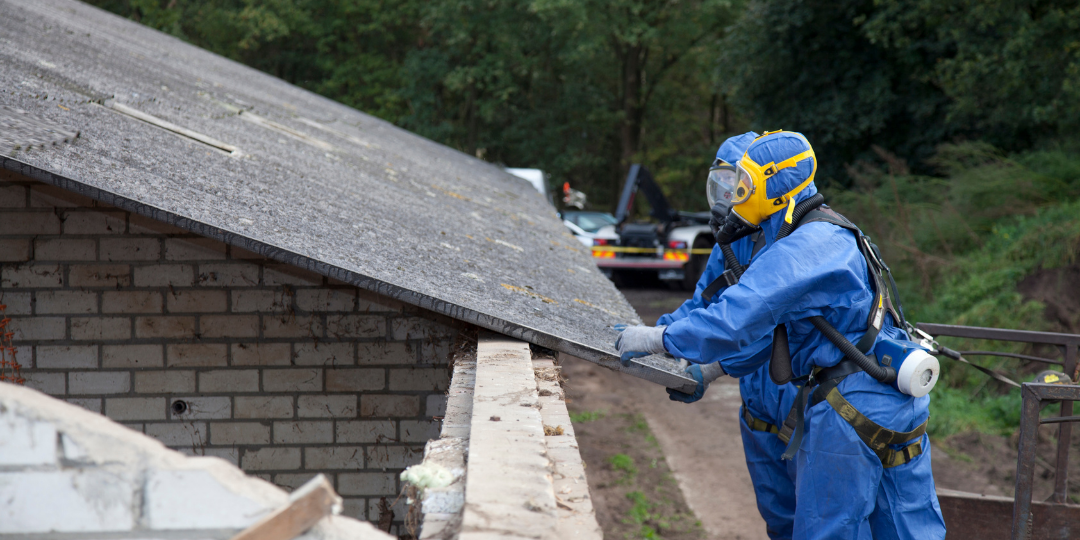SUMMER BLOG SERIES: From intention to deed - Part 7: The compromise and the notarial deed
Selling or buying a home in Flanders is a process that must be followed carefully, with numerous legal and administrative steps to go through. At the heart of these real estate transactions is the 'compromise,' a key document that takes the first formal step towards the sale of real estate. But this is just the beginning.
This article explores the complex path of real estate sales in Flanders, looking at the compromise, the mandatory documents involved in the sale, and the crucial process of signing the notarial deed. From capturing the intent of sellers and buyers to ensuring legal compliance, this article highlights the key elements and steps involved in real estate transactions in this region. If you are planning to sell or buy a property in Flanders, this guide provides valuable insights into the process to help you trade with confidence and knowledge.
What is the Compromise when Selling a Home?
The compromise when selling a home, also known as "compromis de vente" in French, plays a crucial role in the Belgian real estate process. It is the first formal legal document that records the intention of both the seller and the buyer to sell and purchase a home. This compromise, usually drawn up by a real estate agent or notary, is much more than just a symbolic handshake; it lays the foundation for the entire sales process.

This first stage of a residential property transaction involves establishing key details, such as the sales price, delivery date and any terms or clauses that may apply. Thus, the compromise in the sale of a property is the first step towards reaching a binding agreement between seller and buyer, and it is essential for a smooth and legally binding sale of real estate.

What are the mandatory documents when selling a home in Flanders?

The inspection certificate of the electrical installation
Also known as the electrical inspection report, it is an official document that indicates whether the electrical installation in a building complies with applicable electrical safety standards. This certificate is very important when selling a home or for certain renovations. When selling a home, it is mandatory to submit a valid inspection certificate of the electrical installation. The sale cannot proceed without a positive certificate. A positive inspection certificate is generally valid for ten years, unless major changes are made to the electrical installation.

An EPC certificate
In other words, "Energy Performance Certificate" is an official document that provides information about the energy efficiency of a building. This certificate is intended to give potential buyers or tenants insight into the energy performance of a building and to stimulate conscious choices with regard to energy consumption and sustainability. The EPC certificate must be present when selling a home. Here are the key points of an EPC certificate:
- Energy label : The certificate contains an energy label that varies from A (very energy efficient) to G (very energy inefficient). This label gives a clear indication of the energy efficiency of the building.
- Energy consumption : The document contains information about the estimated energy consumption of the building, including heating, cooling, ventilation, and hot water supply. This helps potential residents or tenants to get an idea of the expected energy costs.
- Recommendations : Sometimes the EPC certificate also includes recommendations for improvements that can increase the energy efficiency of the building. This may include insulation, heating systems, and renewable energy sources.
- Validity period : The EPC certificate has a limited period of validity, usually 10 years. After this period it should be reevaluated.

An asbestos inventory certificate
Is an official document that indicates whether a building contains asbestos-containing materials, and if so, which materials and where they are located. This certificate is of great importance for the safety and health of people who work or stay in the building, because asbestos fibers can pose serious health risks when inhaled. This certificate has been mandatory in Flanders since November 2022 for the sale of homes built older than 2001.
Here are the most important aspects of an asbestos inventory certificate:
- Identification of Asbestos : The certificate specifically identifies which materials in the building contain asbestos. This may include insulation material, roofing, floor tiles and pipe insulation.
- Location of Asbestos : It also indicates where these asbestos-containing materials are located in the building. This is critical for the safe management and, if necessary, removal of asbestos.
- Recommendations : Depending on the findings of the inventory, the certificate may contain recommendations for managing, removing or isolating asbestos to ensure the safety of residents or employees.
- Legal Requirements : In many countries, including Belgium, there are legal requirements for carrying out an asbestos inventory, especially in renovation or demolition projects.
The asbestos inventory certificate is essential to minimize the risks of asbestos exposure.

Soil certificate
Is an official document that provides information about the soil quality of a specific plot of land. This certificate is important in real estate transactions and real estate development, because it offers potential buyers and investors insight into the environmental conditions of the site in question.
Here are the most important aspects of a soil certificate:
- Soil quality : The certificate contains information about the soil quality of the plot, including data about possible contaminants or soil problems.
- Historical Data : It may contain historical data about on-site activities that could have affected soil quality, such as industrial use, storage of hazardous substances, or pollution.
- Remediation measures : If remediation measures have previously been taken to tackle soil contamination, this information is also stated.
- Validity : The soil certificate has a validity period and must be updated if significant changes occur on the plot.
- Influence on Real Estate Transactions : In real estate transactions it is customary to provide a valid soil certificate to potential buyers. This allows them to make informed purchasing decisions and understand any soil-related risks.

The Certificate for the fuel oil tank
Demonstrates that an underground or above-ground fuel oil tank meets specific environmental standards and safety regulations. This certificate is of great importance to homeowners who use fuel oil for heating and storage, as it ensures safety and compliance with environmental regulations.
Here are the most important aspects of the Fuel Oil Tank Certificate:
- Inspection and Compliance : Before a Certificate is issued, the fuel oil tank is inspected to ensure that it meets legal standards for safety and environmental protection.
- Validity period : The certificate has a limited period of validity, usually ten years. After this period, the tank must be re-inspected and certified.
- Sale of a Home : When selling a home with a heating oil tank, the certificate is mandatory and must be transferred to the new owner.
- Insurance and Liability : Having a valid Fuel Oil Tank Certificate is often required to be able to claim insurance for potential damage due to leaks or other tank-related problems.
- Environmental aspects : The certificate ensures that the storage of fuel oil does not have a negative impact on the environment, in particular soil and groundwater pollution.

Information about the susceptibility of real estate to flooding
Often called water testing, it refers to data and reports that indicate whether a particular piece of land or building is in an area prone to flooding. This information is vital for property owners, buyers and developers as it helps them assess the risk of flooding and take appropriate precautions.
Important aspects of information about the flood susceptibility of real estate are:
- Flood risk : It indicates whether a particular area is susceptible to flooding and, if so, to what extent. This can range from low to high risk.
- Flood zone : It identifies specific areas prone to flooding, such as river valleys, coastal areas or low-lying terrain.
- Historical Data : It may contain historical data on previous floods in the area, including their frequency and severity.
- Legal Requirements : There is an obligation to provide information when selling or renting for more than 9 years.
- Insurance and Costs : It affects the availability of flood insurance and can affect the cost of property insurance.

The post-intervention file
This is a document drawn up after the completion of construction or renovation work on a building. This file contains important information about the work carried out and the materials used. It is essential for the long-term safety and maintenance of the building.
Some important aspects of the post-intervention file are:
- Technical Data : The file contains technical information about the works carried out, including construction plans, construction methods, and the materials used.
- Safety information : It contains information related to the safety of the building, such as locations of structural elements, electrical installations, and sanitary facilities.
- Maintenance instructions : It may contain recommendations for the maintenance of specific components or systems in the building, to extend their life and prevent problems.
- Utilities and Pipes : Information about the location of utilities such as electricity, water, gas, and sewerage can also be included.
- Legal Requirements : In some countries or regions it is mandatory to draw up and keep a post-intervention file for certain types of construction or renovation works. In Flanders, this is mandatory for homes built or renovated after May 2001.
The post intervention file is of great importance to property owners, managers and maintenance staff as it helps them understand the structure and technical aspects of the building. It also facilitates future maintenance and any subsequent renovations.

Urban planning information
Refers to data and documentation relating to the spatial planning and use of land and buildings within a given area. This information is vital for both property developers and private property owners as it helps understand the legal and planning aspects of a location. As a seller, you are obliged to provide the buyer with urban development information about the urban development permit, any building violations, pre-emption rights of other parties and allotment regulations.
Here are some important elements of urban planning information:
- Zoning plans : These indicate what types of uses are permitted in a specific area, for example residential, commercial, industrial, or agricultural. They also determine matters such as the maximum building height, building density and green areas.
- Permits and Regulations : Information about the required permits and building regulations that apply to construction projects and real estate development.
- Environmental factors : Data on environmental factors that may influence real estate development, such as flood risks, nature reserves, and soil conditions.
- Infrastructure : Information about the availability of utilities such as water, electricity, sewerage, and roads.
- Historical and Cultural Considerations : Where applicable, planning information may also refer to historical or cultural protection zones that may impact development projects.

Information about the heritage value
Refers to data and documentation relating to the historical, cultural, architectural, or archaeological value of a building, site, or area. This information is of great importance for the preservation and protection of heritage and plays a crucial role in real estate development and conservation.
Important elements of information about heritage value are:
- Historical Significance : It identifies and documents the historical significance of a particular building or location, including details of its origins, architecture, and former inhabitants.
- Cultural Importance : It can refer to the cultural value of a building or area, for example if it has played an important role in the culture, traditions, or heritage of a community.
- Architectural Features : It describes the architectural features that make a building or location unique, such as architectural style, design, and artistic elements.
- Protection status : Information about the legal protection status of heritage buildings or areas, such as historical monuments or protected heritage.
- Conservation measures : It may include recommendations for conservation measures to maintain heritage value, including restoration and maintenance guidelines.
Information about heritage value is essential for governments, heritage organizations, real estate owners, and real estate developers. It helps balance real estate development with the preservation of historical and cultural treasures.
What should be included in a compromise?
When drafting a sales agreement for a property in Flanders, also known as a "compromis de vente" or "sales compromise," there are several crucial elements that must be included to protect the interests of both the buyer and the seller. Here's a more detailed overview:
- Identification of Parties: Full names, addresses and any representative third parties must be clearly stated. This includes the buyer(s), seller(s), and any real estate agents or notaries involved in the transaction.
- Description of the Property: The agreement must contain an accurate and detailed description of the property to be sold. This includes the exact address, land registry details, and any specific features or included items, such as appliances, furniture or accessories.
- Price and Payment Terms: Define the agreed purchase price and specify the payment terms. This includes details of the deposit (usually 10% of the purchase price) and when payments are due.
- Conditions: Any conditions that must be met before the sale becomes final must be clearly stated. These may include conditions such as obtaining financing, passing a building inspection, or resolving any legal disputes relating to the property.
- Timetable: The timetable for the different phases of the sale must be determined. This includes the expected date of completion, the time frame for carrying out inspections and any other important dates.
- Fines and Damages: It is important to include provisions regarding fines or damages in the event that either party breaches the agreement.
- Notary and Registration: Indicate the name of the notary in charge of formalizing the transaction and registering the transfer of ownership at the land registry.
- Other Provisions: In addition to the above elements, there may be other clauses specific to the situation, such as the transfer of current rental contracts or the state of maintenance of the property.
It is of utmost importance to seek legal assistance when drafting this agreement to ensure that it meets all legal requirements and that the interests of both parties are protected.

The notarial deed
The process of signing a deed and transferring ownership before a notary when selling a home in Flanders takes place in several steps and involves careful legal procedures.
To ensure that third parties are aware of the sale of real estate, the sale of real estate is always transferred to the register of the Legal Certainty Office (formerly known as the 'Mortgage Office'). This is not possible with just a compromise. Registration and transfer is only possible with a notarial deed.
Here's an overview of how this process typically goes:
Step 1: Signing the Authentic Deed
- Notarial Preparation: Before signing the deed, the notary will carefully collect all documents and information necessary for the transfer. This includes the identification of the parties, the description of the property, the mandatory documents, the purchase price and payment terms and other relevant details.
- Appointment with the Notary: All parties involved, including the buyer(s) and seller(s), make an appointment with the notary to sign the deed. This usually happens at the notary's office.
- Deed reading: The notary reads the deed to everyone present to ensure that everyone is fully informed of the contents and consequences of the agreement. Any questions can be answered at this time.
- Signing: After the deed reading, all parties involved, including the notary himself, sign the authentic deed. This makes the agreement official and legally binding.
Step 2: Registration with the Land Registry
- Handing over the Deed to the Land Registry: After signing, the authentic deed is handed over by the notary to the Land Registry (the competent government body). This is the official moment when the transfer of ownership takes place.
- Registration: The land registry registers the deed and thus recognizes the new owner of the home. This registration is essential to formalize the transfer of ownership and protect the rights of the new owner.
Step 3: Payment of Taxes and Duties
- Payment of registration fees: After signing the deed, the buyer(s) are obliged to pay registration fees. This tax is based on the purchase price and may vary depending on region and other factors.
- Any Other Costs: Depending on the specific situation, other taxes, costs or levies may apply.
Step 4: Handover of Keys and Transfer of Ownership
- Key Handover: After completing the above steps, the actual handing over of the keys and possession of the property takes place. This is often done on the agreed date of completion.
Signing the authentic deed and transferring ownership before a notary is a strictly regulated process that ensures that the sale of real estate in Flanders is legally correct and transparent. It is of utmost importance to employ an experienced notary to guide the process and ensure that all legal requirements are met. Real estate agents also have to deal with notaries and deeds on a very regular basis. They can therefore perfectly guide and guide you through this entire process.

Conclusion
In Flanders, the compromise on the sale of a home is a fundamental legal document that formalizes the intention of both the seller and the buyer to complete a real estate transaction. It is not just a symbolic step, but rather the first step in a process that lays the foundation for the full real estate sale.
In addition, there are mandatory documents and certificates that must be provided to meet the legal requirements when selling a property in Flanders. Consider, for example, the EPC certificate, the asbestos certificate, the electrical inspection, etc. they are all crucial to ensure a legally correct transaction and to protect the safety and rights of both buyer and seller.
The process of signing the notarial deed and transferring ownership before a notary is the final step in the real estate sales process. It involves careful legal procedures, including registration with the land registry and payment of registration fees and other taxes. This process ensures that the transfer of ownership is legally correct and transparent.
It is of utmost importance to seek expert advice and work with experienced professionals, such as notaries and real estate agents, to understand and manage the complexities of real estate transactions in Flanders. By following these steps and complying with legal requirements, both buyers and sellers can confidently enter into real estate transactions and maintain the value and integrity of the property.
Thank you
There you go, our summer series has come to an end. In 7 episodes we discovered why someone wants to sell in the first place, what are the motives? What plays a role psychologically? We then looked at the next steps needed to realize this wish: from presentation to marketing, from visits to the notarial deed. We hope that this series has provided more clarity and can serve as a basis for your own story.
If you have any questions or would like to discuss your ambitions with an expert from our team without obligation, do not hesitate to contact us via the button below.
We thank you for following this blog series and look forward to the next one!

